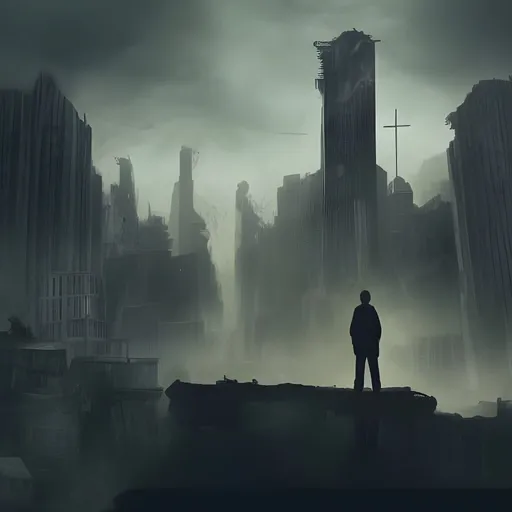Déjà Vu – Cycle of Power
The first variation in a series exploring repetition and meaning in life.
And in the days of those kings the God of heaven will set up a kingdom that shall never be destroyed, nor shall the kingdom be left to another people. It shall break in pieces all these kingdoms and bring them to an end, and it shall stand forever…
— Daniel 2:44 (NIV)
Organisations, institutions, nations, governments, civilisations. Whether big or small, strong or weak, aggressive or meek, each eventually fades and another rises to take its place. Though on the outside, they seem different; in the inside, they are underscored by a common denominator: the human nature of selfishness and stupidity (or put bluntly, sin).
Does this mean we should dissolve into anarchy? Well, no. Organisation, with enough trust, is better than disorganisation. Proper care should be taken to manage resources, especially on a nation-wide level.
What has been is what will be, and what has been done is what will be done, and there is nothing new under the sun.
— Ecclesiastes 1:9 (NIV)
"Gibberish, ChatGPT is new under the sun!" But if we take into account all history and the timeline of events, there’s really not much new. Did you know before computers were invented, a computer used to be a job title? It wouldn’t be surprising if, later on, an engineer or artist refers to a computer program.
My point lies in the cycle of power and time. Developments, alliances, wars, laws, technologies, and disasters become mere motifs in the grand scheme of things. Standards of living, science, technology, and health have all improved over the past millennia, but nations still rage like a ceaseless tempest. Conflicts arise, almost inevitably, as if they were meant to be. Such is human nature.
Déjà Vu – Cycle of Power is my impression of all the above. The musical ideas in this piece were not without inspiration. Some notable inspirations were Fauré's melodic tune in Libera Me, Holst's militaristic rhythm in Mars, and John Adams’ minimalist works.
This piece is scored for orchestra, with repeated sections to capture the essence of a cycle. Throughout this timeless journey, civilisations rise and fall. They come in different shapes and sizes, from the grand to the subdued, from the pacifists to the militarists. A fleeting escape is made into a lucid dreamlike passage where flourishing arpeggios elevate us from reality; yet order lurks in the background. The piece culminates in an oddly familiar setting as history seemingly repeats itself.
Each motif and section comes to an end, their place taken by a new motif—and ultimately silence. But there’s a motif which doesn’t end—which can’t be captured on sheets of music.1
Although the world we live in may seem like an inescapable matrix2, each of us has the opportunity to learn, to teach, to experience different perspectives, and to share the hope of something unseen—something more.
On this Easter Sunday (and well… all Easter Sundays), we commemorate the resurrection of Jesus Christ, remembering the glorious occasion of His power—and victory—over death, sin, and evil.
Footnotes
How do you apply dimension reduction on the infinite without discarding an ounce of its beauty? Good luck trying to use PCA or whatever dimensionality reduction algorithm is popular at the time of reading. I mean, I suppose it's still possible to focus on some aspects and reduce accordingly. Maybe for a later time. ↩︎
Alluding to the movie. Go watch it if you haven’t already. cough - You know who you are. ↩︎







